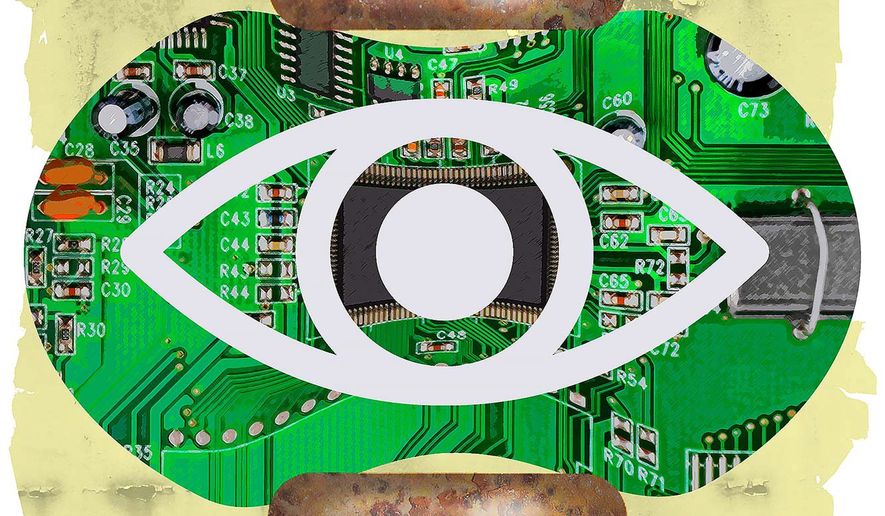OPINION:
In what has become an increasingly rare occurrence, there appears to be growing bipartisan consensus forming that America’s “Big Tech” industry needs regulatory reform. Senior leaders of the Senate Judiciary Subcommittee on Antitrust, Sens. Amy Klobuchar and Mike Lee, agree that Big Tech has significant problems. But that is where the consensus ends.
Both Ms. Klobuchar and Mr. Lee have already laid down dueling markers defining their antitrust agendas for the 117th Congress.
Ms. Klobuchar’s reforms focus on market concentration regardless of consumer harm. Big is bad. In a statement trumpeting her Competition and Antitrust Law Enforcement Reform Act, Ms. Klobuchar said, “While the United States once had some of the most effective antitrust laws in the world, our economy today faces a massive competition problem. We can no longer sweep this issue under the rug and hope our existing laws are adequate.”
The key portion of the senator’s bill modifies current antitrust law to create a risk-based merger standard requiring merging companies to prove their merger won’t decrease competition. Ms. Klobuchar believes that regardless of action, a company’s size is evidence of its intent to harm consumers — a departure from the current standard which is concerned with whether consumers are actually harmed.
Meanwhile, Mr. Lee takes aim at specific actions by Big Tech. In an outline of his goals as ranking member of the subcommittee, Mr. Lee wrote, “The actions of Big Tech continue to divide the nation, undermine fundamental liberties, and distort the market. The Silicon Valley fairytale of innovation and technological progress sold to Americans has turned into a corporatist nightmare of censorship and hypocrisy … The consumer welfare standard — which ensures that the primary beneficiaries of the antitrust laws are the people, rather than big business — is essential to maintaining free markets.”
Adopted decades ago in a series of U.S. Supreme Court decisions — many unanimous — the consumer welfare standard ended an era of confusion for business and abuse by regulators. Before adopting the consumer welfare standard, antitrust law included numerous competing justifications for enforcement actions against businesses. Often it was impossible for companies to determine with reasonable certainty whether a potential merger, acquisition or expansion was legal or not. This hampered capital investment, restricted consumer choice and hindered the streamlining of business operations even when it was to the consumer’s benefit.
Existing antitrust regulations based on the consumer welfare standard already provide the government the enforcement tools necessary to protect consumers from price collusion, unfair competitive practices and abuse. New antitrust legislation that creates additional justifications for intervention into the market would only politicize our economy, reduce legal clarity and discourage investment.
Mr. Lee is also correct that lawmakers must no longer ignore Big Tech’s ability and willingness to censor disfavored viewpoints to bolster preferred political expressions and outcomes. There certainly seems to be an industrywide effort to silence voices accused of “wrong think.” When the handful of companies that make up Big Tech collectively decided they didn’t like Parler, the social media network systemically removed from app stores, and even its webserver within 24 hours.
Unlike the infamous 19th and 20th century instances abuses by monopolists that gave rise to our nation’s foundational antitrust legislation, these synchronized assaults on consumer choice are not aimed at raising prices. Instead, they are meant to punish companies and silence consumers who dare disagree with the prevailing politics of Big Tech.
That falls straight into the domain of Section 230 of the Communications Decency Act (Section 230), not antitrust law.
Section 230 is the law that protects Twitter from civil action for blocking or banning content Twitter deems inappropriate, even if that content favors one political ideology over another. Mr. Lee writes, “The Silicon Valley fairytale of innovation and technological progress sold to Americans has turned into a corporatist nightmare of censorship and hypocrisy.” If that’s the case, Section 230, not antitrust law, is the culprit. Discarding the consumer welfare antitrust standard to attack censorship would be a mistake.
I share Sens. Klobuchar’s and Lee’s concerns about the market power of large technology firms. However, shifting the focus of antitrust law away from the consumer would open a Pandora’s box of regulatory uncertainty and turmoil onto the nation’s economy. Such a change is wholly unnecessary. If censorship is the concern, better to consider reform of Section 230 than toss the consumer welfare standard. Moving to a risk-based antitrust system will eventually lead to increased operating and litigation costs for the nation’s businesses, the vast majority of whom have nothing to do with censorship by Big Tech. In the end, that cost will ultimately be passed along to the consumer.
American consumers have been bullied enough by these would-be Silicon Valley tyrants. Congress must find another way to curb their abuses than sacrificing the consumer welfare standard.
• Will Hild is executive director of Consumers’ Research.




Please read our comment policy before commenting.